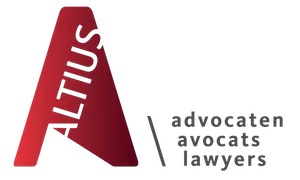- within Employment and HR topic(s)
- in United States
- within Intellectual Property, Real Estate and Construction, Litigation and Mediation & Arbitration topic(s)
- with readers working within the Technology industries
In our September 2022 newsletter1, we discussed the rise of Employers of Record (EoR) in Belgium. Despite the grey legal area in which EoRs operate, their number has continued to grow in recent years. As there is no clear legal framework governing EoR activities in Belgium, the question arose how an EoR should position itself on the Belgian labour market: as a (heavily regulated) temporary work agency, or as a service provider offering HR solutions? Until recently, both federal and regional governments remained silent on the matter. The Flemish Government, however, has now clarified its stance: only entities holding a valid licence as a temporary work agency may provide EoR services in Flanders.
1. A short recap: what is this about?
Under the Belgian Employee Lending Act, "employee lending" is defined as a situation in which an employer allows a third-party user to benefit from the services of one or more of its employees, while the authority normally vested in the employer is (partly) exercised by the third-party user.
With limited exceptions, the Employee Lending Act prohibits the user from giving instructions that qualify as an exercise of the employer's authority.
The question, therefore, is how the EoR model can be reconciled with this principle. In practice, an EoR in Belgium has two main options:
- Either it presents itself as a licensed temporary work agency, or
- it operates as a provider of HR-related services.
Both options have pros and cons, while none of these options fully fits with an EoR's business model.
If you want to know more about this, click here.
2. The Flemish Government's position: recognition as a temporary work agency is required
The Flemish Government is the first regional authority to explicitly set out its position on EoRs. On its website2, it states that only entities holding a valid licence as a temporary work agency may provide EoR services in Flanders.
This means that EoRs can only operate in Flanders once they have obtained a formal licence. To obtain such a licence, an EoR must demonstrate that it meets certain conditions (including the payment of a substantial financial guarantee to the Security Fund3), through a formal application procedure.
Even more importantly, the Flemish Government requires that EoRs restrict their activities to what falls strictly within the legal framework of temporary agency work. Temporary agency work is only permitted in a limited number of legally defined cases, such as the replacement of an employee, a temporary increase in workload, the performance of exceptional work, or the "in-flow" of an employee. For each of these grounds, specific requirements apply – not only to the temporary work agency but also to the user (i.e. the EoR's client).
3. Practical impact
Although the position of the Flemish administration must be regarded as an "instruction", as it is not confirmed in any regulation, it does provide EoRs with greater certainty as to what they can expect during an inspection by the Flemish Social Inspectorate. The risk of inspection is not negligible, and the number of audits targeting EoRs has increased in recent years.
That said, the question arises whether the Flemish administration's position is not overly strict. Depending on how an EoR structures its services, the alternative of positioning itself as a provider of HR-related services may still be defensible. It remains to be seen whether the Flemish Social Inspectorate will allow for nuance when assessing an EoR that does not, in practice, transfer any element of employer authority to the user.
4. What about Brussels and Wallonia?
So far, the competent administrations in Brussels and Wallonia have not issued an explicit similar guidance. However, it can reasonably be expected that they will apply the same standard.
This creates additional formalities for EoRs operating across Belgium. Each region requires a separate recognition in order to provide temporary agency work services. Once an entity is recognised in one region, obtaining recognition in another region is typically easier. It may therefore be useful for EoRs to consider in advance in which region they wish to submit their initial application.
Footnotes
1. The rise of Employers of Record (EOR) on the Belgian labour market
2. Erkenning als uitzendbureau: wie, wat, waar | Vlaanderen.be
3. A financial guarantee of EUR 75,000 has to be paid to the Security Fund. A first instalment (EUR 25,000) must be paid when applying for the license. The 2nd instalment (EUR 50,000) must be paid when the recognition is obtained.
The content of this article is intended to provide a general guide to the subject matter. Specialist advice should be sought about your specific circumstances.



